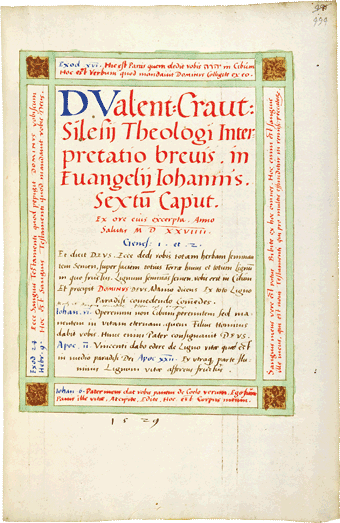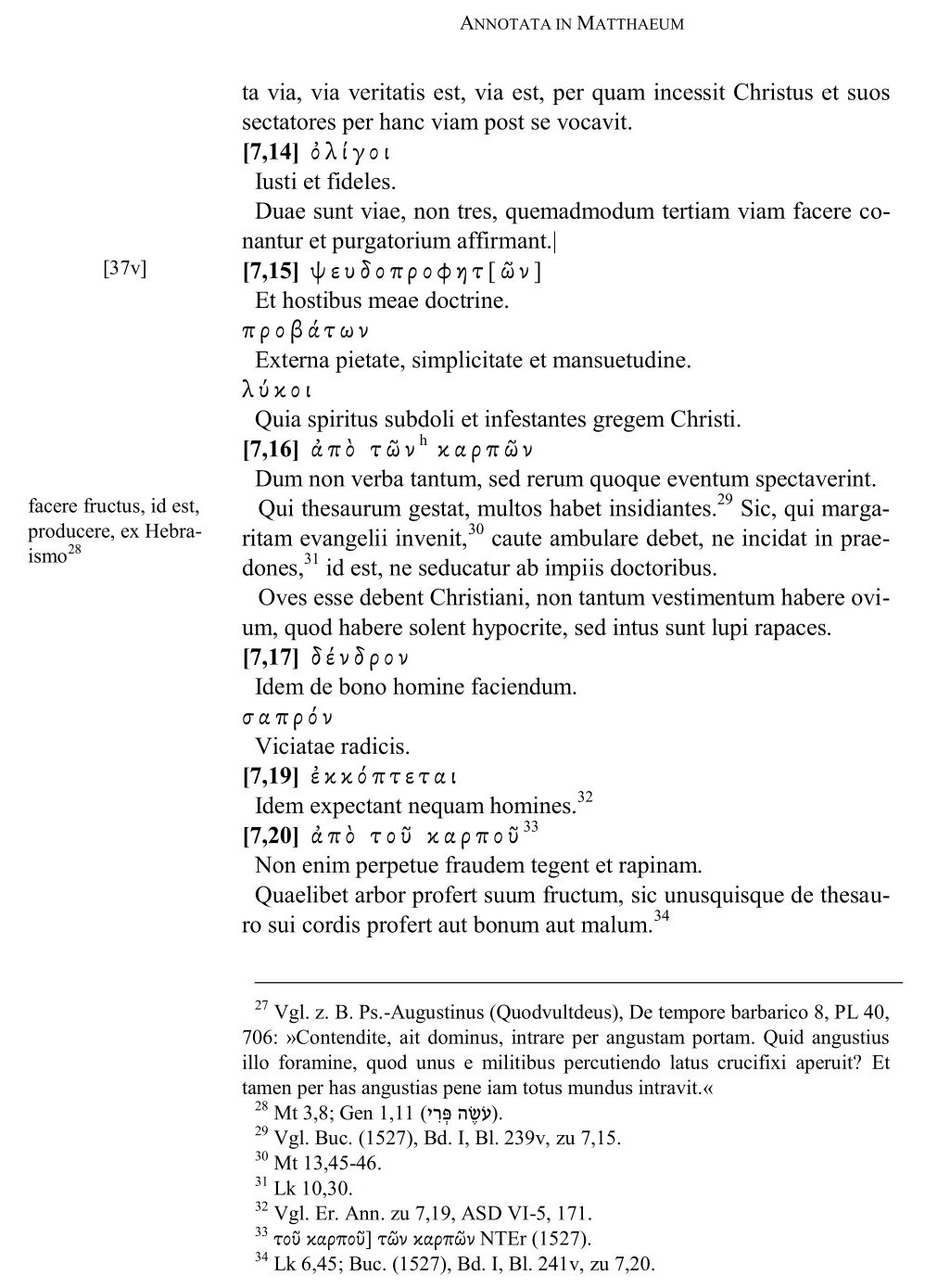


Répertoire des non-conformistes religieux des seizième et dix-septième siècles
scripta et studia — Tome 10-12 gleichzeitig
CORPUS SCHWENCKFELDIANORUM
Published under the Auspices of the Schwenkfelder Church Pennsylvania
Supplement Volumes I-III:
A Rediscovered Corpus of Radical Reformation Bible Exegesis
VALENTIN KRAUTWALD
Lectures on the New Testament, 1526-1530Edited by Martin Rothkegel I: Valentin Krautwald: In evangelium Matthaei annotata. Vorlesung über das Matthäusevangelium (1530). 2022. 392 Seiten, 2 Abbildungen. € 112,-- ISBN 978-3-87320-876-6
II: Valentin Krautwald: In evangelium secundum Iohannem annotata. Vorlesung über das Johannesevangelium (1529). 2024. In Vorbereitung / forthcoming. ISBN 978-3-87320-875-9
III: Valentin Krautwald: Scholia in Acta Apostolo rum. Annotata in epistolas ad Romanos, ad Corinthios I et II, ad Galatas et ad Colossenses. Vorlesungen über die Apostelgeschichte und die Paulusbriefe.In Vorbereitung / forthcoming. ISBN 978-3-87320-874-2
Radical Reformation Bible exegesis has largely been neglected
by researchers. This Supplement to the Corpus Schwenckfeldianorum presents hitherto unknown lectures on the New
Testament held by Valentin Krautwald in Liegnitz, Silesia,
between 1526 and 1530. The texts offer new insights into the
emergence of Schwenckfeldianism and its intellectual sources.
Krautwald, the pioneer of Greek and Hebrew studies among
the Silesian humanists, only entered theological debates when
he was already sixty years old. Starting with an expert opinion
on the Eucharistic Controversy of 1525, Krautwald gradually
developed an original theological system. Eventually, he
rejected both the traditional Roman Catholic Church and the
new worship and doctrines introduced by the Reformers.
Krautwald did not publish any of his theological works
himself. His ideas were popularized and propagated by the
Silesian nobleman Caspar Schwenckfeld von Ossig, who had
gone into exile in Southern Germany in 1529. For the rest of
the sixteenth century, Schwenckfeldian Spiritualism became
the most influential form of religious dissent among Southern
German urban elites and the lower aristocracy.
In 1526, the Duke of Liegnitz attempted to establish an evangelical university in the capital of his principality. Krautwald
was appointed lecturer at the short-lived and poorly documented "Gymnasium Legnicense." Overlooked by pre vious
research, extensive notes of Krautwald's lectures have survived in manuscripts in Prague, Munich, Cambridge and Wolfenbüttel.
Krautwald based his lectures on the New Testament scholarship of Erasmus and on his own reading of the church
fathers. The newly-discovered texts document Krautwald's
theo logical radicalization and the formation of Schwenckfeldian doctrine. Manuscript copies of Krautwald's lectures
were circulated and studied within Schwenckfeldian circles,
but were forgotten in the seventeenth century. The critical
edition includes historical introductions, German summaries
of Krautwald's Latin expositions, critical notes, and various
indices.
Already published:
Volume I: Valentin Krautwald: In evangelium Matthaei annotata.
Bibliotheca Dissidentium XXIV & XXX,
Bibliotheca Dissidentium - scripta et studia IX & X
Zurück zur Bibliotheca Dissidentium — scripta et studia
Zurück zur Bibliotheca Dissidentium